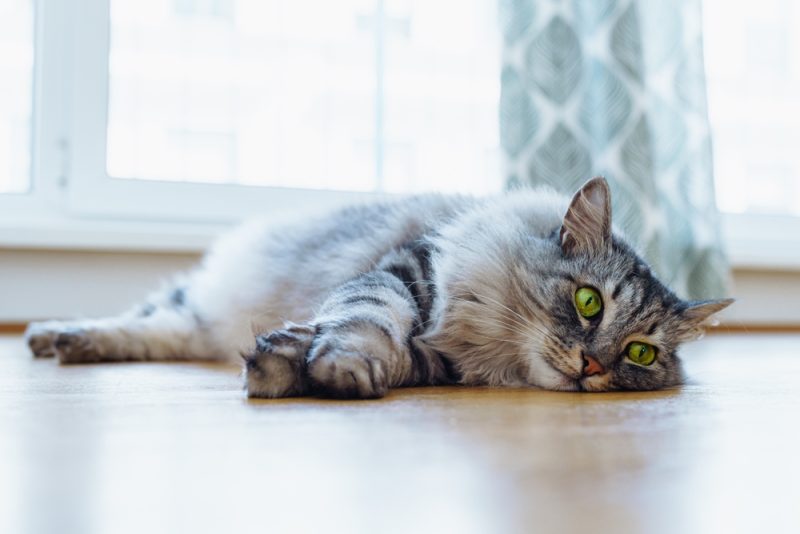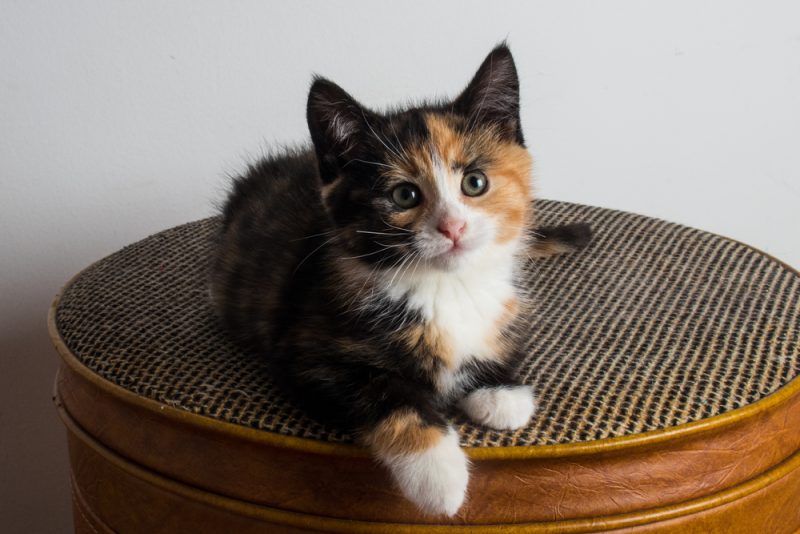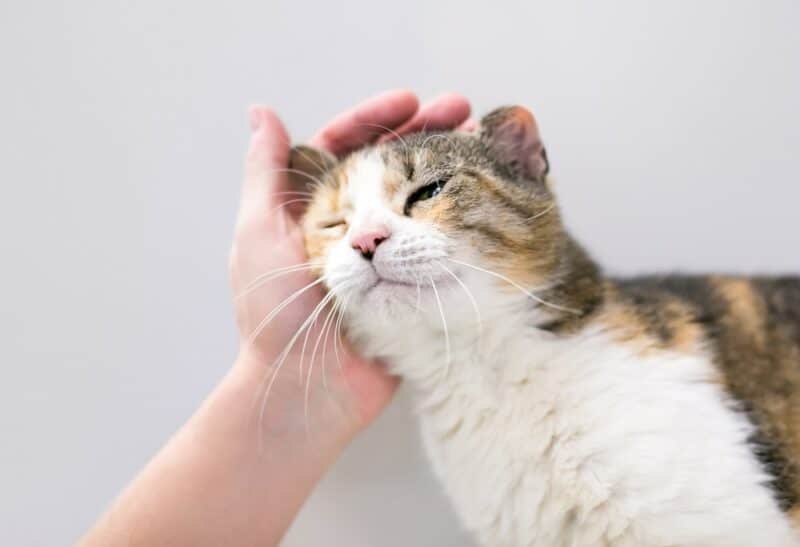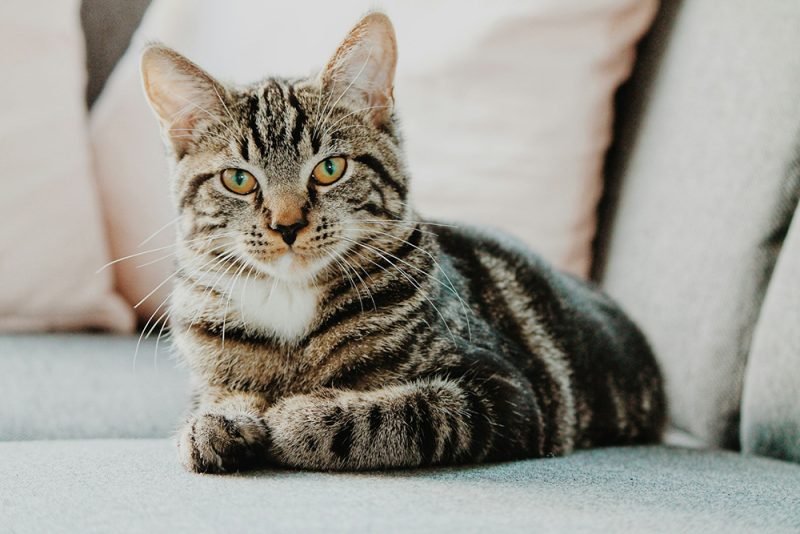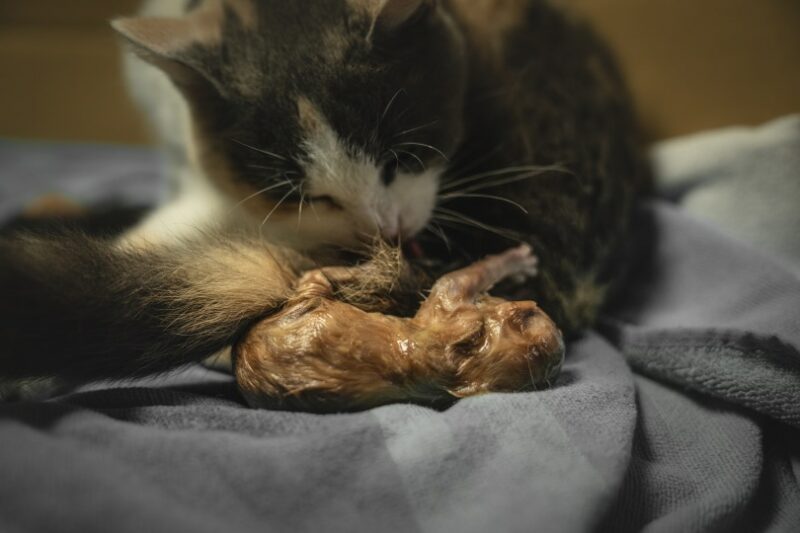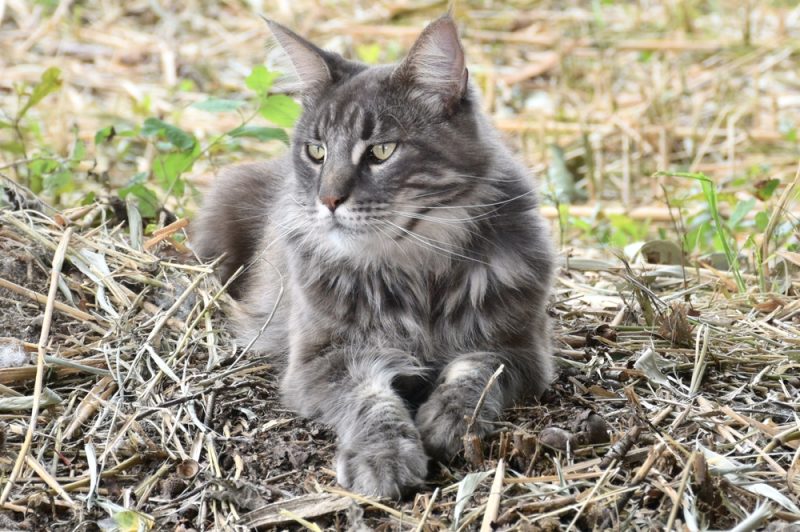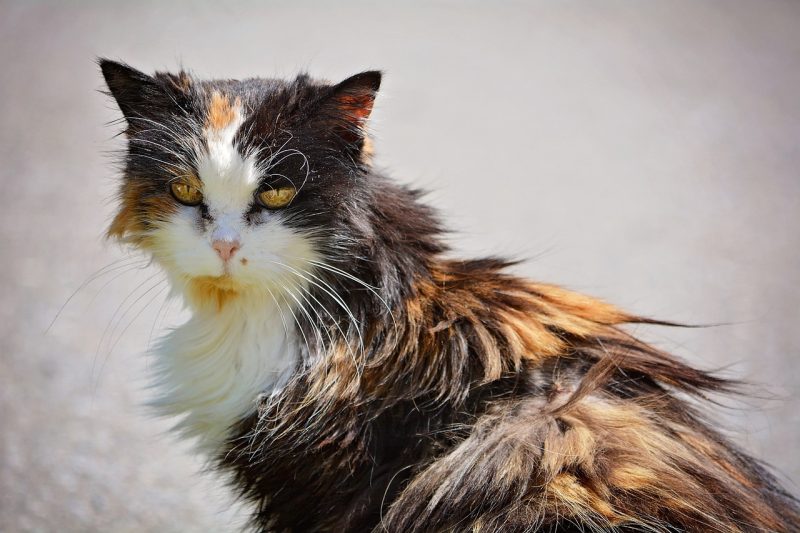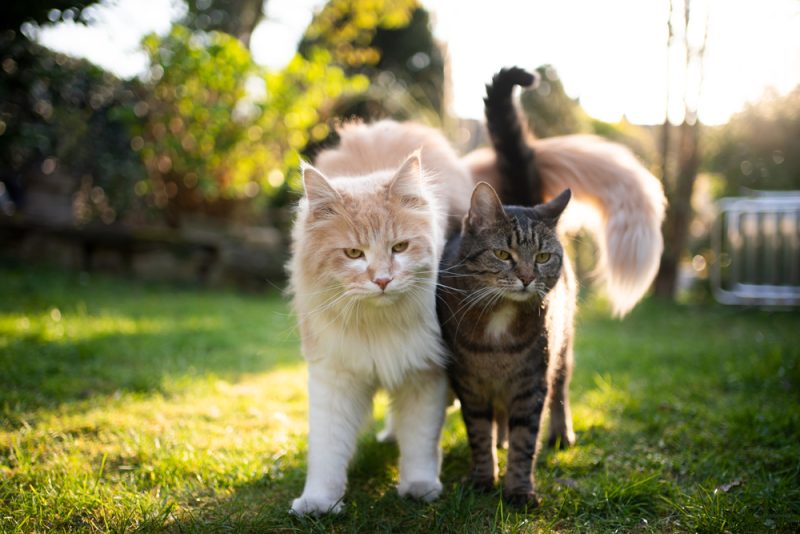Your cat has what you can only describe as the sniffles. They have a runny nose and watery eyes, and you’re sure you just heard a sneeze. Do cats get the flu? Let’s take a look at cat flu and what you can do to help your cat feel better.

What Is Cat Flu?
Have you ever heard the term cat flu before? Depending on where you live and your cat’s veterinarian, they might call it the cat flu or an upper respiratory infection. Cat flu is generally used to refer to a contagious viral upper respiratory illness.
Cat flu is highly infectious. Affected cats typically have respiratory signs but can also have eye issues, mouth sores, and lethargy. Similar to a cold in people, cat flu is caused by viruses. Your cat can develop secondary bacterial infections as well. Some cats are only mildly affected, while other cats could die from it, especially if they develop severe complications, such as pneumonia.
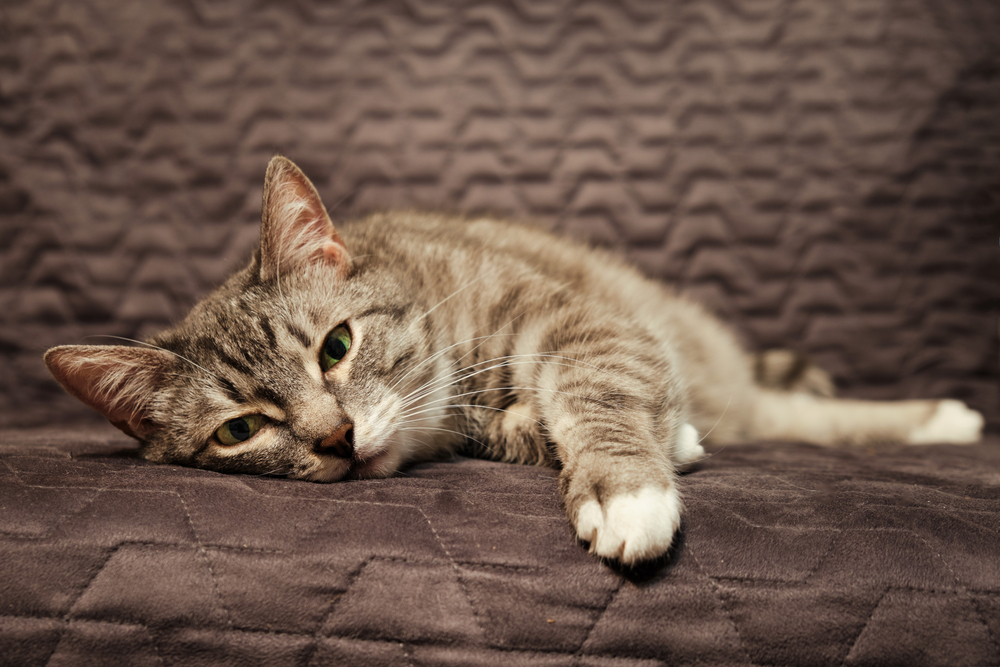
What Are the Signs of Cat Flu?
The signs of cat flu vary from cat to cat, but the most common signs are upper respiratory signs.
- Sneezing
- Coughing
- Runny nose
- White or clear nasal discharge
- Runny eyes
- Decreased appetite due to congestion
- Lethargic and withdrawn
Cats can develop secondary bacterial infections, which could lead to thick, mucoid nasal discharge. Excessive sneezing may lead to epistaxis or nose bleeds, so be on the lookout for any evidence of blood.
If your cat is squinting or pawing at their eyes, your veterinarian needs to perform an eye test to make sure there’s not a scratch on the cornea, also known as a corneal ulcer. Other conditions associated with cat flu and cats’ eyes include:
- Conjunctivitis
- Ulcerative keratitis
- Dry eye (keratoconjunctivitis sicca)
Cats with cat flu may also develop mouth sores. These painful lesions can make it hard for your cat to eat or drink. These sores can be inside their mouth or around the margins of their lips. Some cats with cat flu are febrile.
Cats have a higher temperature than we do, usually between 100.5 and 102.5 degrees Fahrenheit, so it’s hard to tell if they have a fever simply by touching them. If you have an ear thermometer, you can check that. Be careful if you attempt a rectal temperature because you could damage your cat’s rectal tissues if you’re not careful or they thrash.

What Are the Causes of Cat Flu?
Cat flu is generally caused by one of two viruses: feline herpesvirus or feline calicivirus. Many cats are exposed to these viruses at a young age. In fact, according to the Veterinary Vision Center, over 50% of cats have feline herpesvirus. They don’t all show signs of the illness or may show signs of the disease intermittently.
The viruses that cause cat flu are contagious from cat to cat, but they aren’t contagious to you. Cats will typically shed the virus through saliva and ocular and nasal discharge. Cats could be exposed via shared toys, dishes, and other fomites or objects that can share the viruses. You could even be a fomite if a sick cat rubs on your shoes, and then you go home to your cat without disinfecting or washing your items.
In many cats, feline herpesvirus can become latent in their system, lying in wait for a stressor. If something such as moving or traveling stresses your cat’s immune system, your cat could develop an active infection again.

How Do I Care for a Cat With Cat Flu?
Most of the time, your cat needs time and supportive care to recover from the cat flu. Try to minimize stress as much as possible and allow your cat plenty of rest. You should contact your veterinarian for an exam to ensure medical intervention is unnecessary. While caring for your cat, keep the area around their eyes and nose clean with a damp rag. Your veterinarian may also suggest lubricating eye drops to keep the eyes moist.
If you need to speak with a vet but can't get to one, head over to PangoVet. It's an online service where you can talk to a vet online and get the advice you need for your pet — all at an affordable price!

1. Diagnosing Cat Flu
Your veterinarian will often suspect cat flu based on your cat’s clinical signs and history. Did you recently bring a new cat into the home or place your cat in a kennel for several days?
PCR testing is helpful to see if a cat is positive for the viruses associated with cat flu. It’s essential to remember that a positive test doesn’t mean that the virus is responsible for all your cat’s signs, and they could also have other infections. The vet can collect a nasal, conjunctival, or pharyngeal swab for testing.
Your veterinarian may recommend blood work to assess your cat’s internal organs. Radiographs (X-rays) are helpful if they’re concerned about pneumonia. Your veterinarian may also suggest eye testing for corneal ulcers with a fluorescent stain.
2. Fluids
Your cat needs to stay hydrated to combat cat flu. Offer plenty of water, and you can also try adding water to their food. Your veterinarian might suggest a little tuna juice (in water, not oil). In addition to canned foods, there are also mousse cat foods. Purina also makes a hydration support product known as Hydra Care. (This product is typically used for cats with kidney failure but can offer a boost in hydration.)
Your vet might suggest fluid therapy depending on how sick your cat is. Some cats will do fine with some subcutaneous fluids (fluids given under the skin), but highly sick cats may need IV fluid therapy.
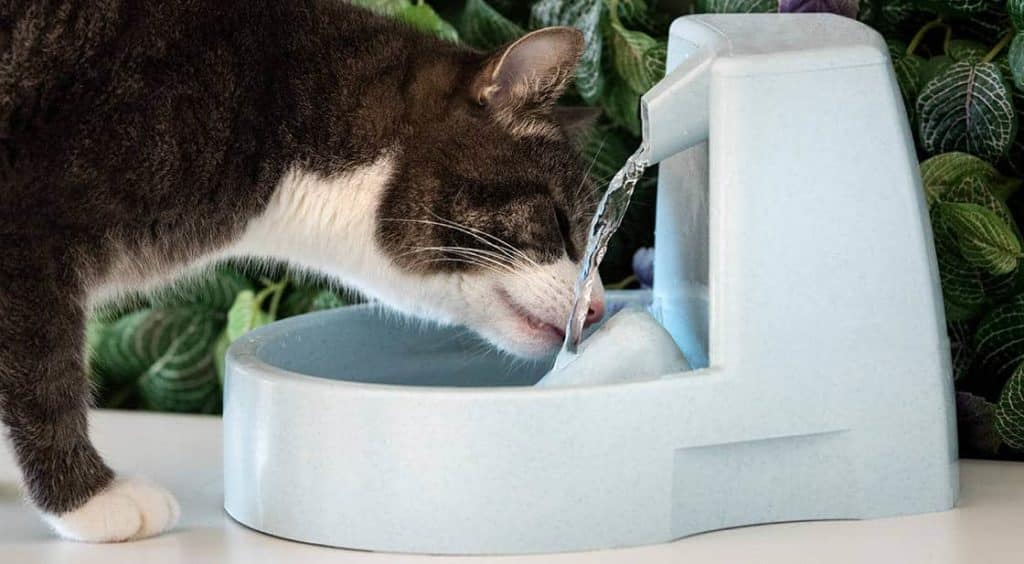
3. Feeding
You might need to stimulate your cat’s appetite when they’re feeling under the weather. You’ll want something rather pungent, especially if they’re congested.
Talk to your veterinarian about diet options. Some cats would benefit from a high-calorie (and highly palatable) canned food like Hill’s a/d or Royal Canin Recovery. Some other options aren’t balanced for long-term feeding but could stimulate your cat’s appetite in the short term. Chicken or turkey baby food is tempting for many cats.
You could try warming up the food you offer to increase its smell and encourage your cat to eat it, but you’ll need to be incredibly careful. You don’t want to burn your cat’s mouth, so test the food’s temperature before giving it to your kitty.
4. Medications
Your veterinarian may prescribe antibiotics if they suspect a secondary bacterial infection. Please understand that antibiotics won’t treat a viral infection, so your vet isn’t likely to recommend them immediately. Commonly used medications include:
- Azithromycin
- Clavamox
- Doxycycline
Because the root cause of cat flu is generally viral, your veterinarian could prescribe an antiviral medication. These medicines are not commonly used. In some cases, L-lysine has been used to help limit signs of feline herpesvirus. While this supplement tends to be well-tolerated, studies have not supported it as an effective treatment.
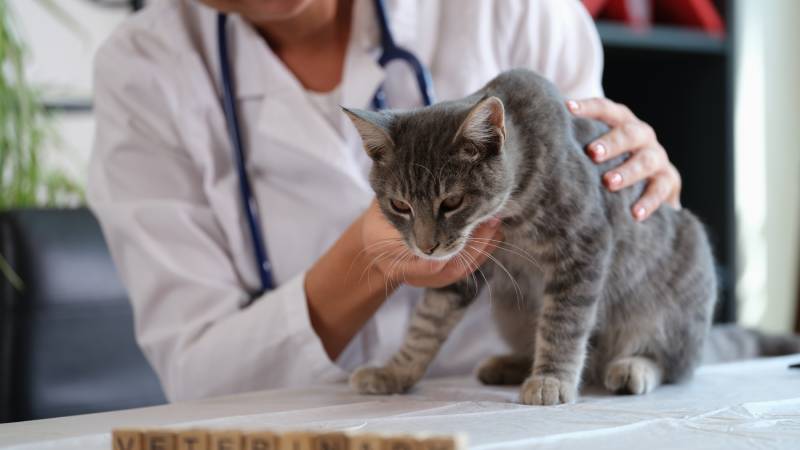
Frequently Asked Questions (FAQ)
When is it time to see a vet?
Seek immediate veterinary care if your cat exhibits any of the following: refusal to eat or drink for over 24 hours; lethargy (minimal movement, hiding, or lack of response); labored or open-mouthed breathing; green or yellow eye or nose discharge; persistent coughing or drooling; feeling very hot (especially ears and paws, suggesting fever); or repeated vomiting or diarrhea. Kittens, senior cats, and those with weakened immune systems are at higher risk and should be seen promptly if any of these signs appear.
How long does cat flu last?
For most cats, cat flu only lasts for 5 to 10 days. Some severe cases may last several weeks.
Even though the active infection might only last for several days, your cat will have the feline herpesvirus virus for life if that is the virus they’re infected with. Calicivirus typically only lasts in their system for several months but can also be a long-term illness.
Is cat flu contagious to people?
No, if your cat has cat flu, you don’t have to worry about getting it from your kitty. You also don’t have to worry about your dog getting it from your feline family member. Other cats in the household are at risk, as this illness is highly contagious.

Conclusion
If your cat has cat flu, the best thing you can do is chat with your veterinarian and offer supportive care. Keep your cat away from other cats and disinfect their belongings to minimize the spread of the viruses responsible for the illness.
Featured Image Credit: larisa Stefanjuk, Shutterstock

